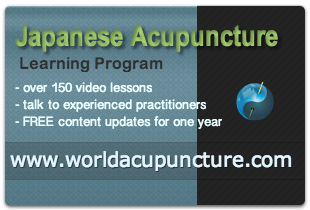As Christmas approaches down under style, the stress of tying up all the loose ends in addition to an extraordinary dry and hot spell of weather has seen a number of my patients present to clinic energetically deflated.
3 of these patients were diagnosed as Liver yang deficiency syndrome, that is where the Ying and Yang aspects of the liver meridian and organ are exhausted.
In this scenario the patient feels overwhelmed and they have great difficulty in dealing with many of the day-to-day details that they might normally taken in stride.
In addition in many cases they have a poor appetite, cannot think straight and although they are absolutely exhausted, many of these patients have great difficulty in relaxing and in some situations suffer from various degrees of insomnia.
In the past week on3 separate occasions patients have returned after the previous treatment complaining of overwhelming fatigue and exhaustion immediately after treatment.
I’m sure you’ll agree that this is not an ideal scenario, my clinical ideal being that patients feel relaxed and invigorated after each treatment.
One of the patients is a medical practitioner with a very delicate constitution, without going into great detail she has been diagnosed amongst other things with multiple sclerosis.
Another has been in constant pain after complicated surgery on her lower back and in the instance of patient has an ongoing history clearly demonstrating blood deficient.
In all instances these patients are relatively new clients, undergoing Japanese acupuncture treatment for a month or less.
The anomaly in each of these situations is that the patients had experienced significant beneficial results from previous treatments and it is a unique experience for me that three patients should feel exhausted immediately after treatment in the space of one week.
In each instance I re diagnosed the patient to confirm that my original diagnosis was still correct.
After an exhaustive examination I was satisfied that my diagnosis of liver yang deficiency was correct, this could only mean one thing, I had over zealously treated all of them.
The root treatment for each of these individuals was the same, Kidney 3, Liver 3 and Gall Bladder 40, in one instance with the addition of Spleen 1.
The back shu points were very similar in all instances and rice grain moxibustion was applied to the point Governing vessel through.
What this meant to me was that in my endeavor to assist them I had fallen into the trap of more is better.
In the case of liver yang deficiency syndrome this is most definitely not what we or the patient want!
So I bit the bullet and utilized the same treatment in all cases, however in each instance I shortened the treatment time by at least 10 minutes meaning that each of the patients lay prone with the back shu points in position for no more than 15 minutes and I increased my awareness of depth of needling, focusing on more intention and less depth.
Whilst chastened by the fact that all three patients had responded so poorly to my previous treatments I was determined to rectify the situation immediately.
It is with relief that I can report that in all three cases the patients felt significant improvement in their energetic well-being, mental acuity and emotional outlook immediately after treatment.
Phew, the trials and tribulations of refining my skill and awareness in the practice of Traditional Japanese acupuncture remain constant and challenging and it is with a sense of gratitude to Masakazu Ikeda sensei that I write this report.
His guidance through many workshops and visits to Japan has helped me immeasurably to deal with situations such as the one I’ve just outlined.
His ability to recognize when the patients require the most gentle of touches in addition to his highly refined clinical skills have set the bar very high indeed.
Had I not had the privilege of witnessing and in some instances experiencing the benefit of his acupuncture intelligence, I have no doubt at all that all of the patients mentioned would be languishing in the squalor of overwhelming lethargy and fatigue at a time when the demands on each and every one of us are so great.
I would like to take this opportunity to thank you for your interest and commitment in refining and developing your critical acumen and skills in the practice of Traditional Acupuncture.
I wish you and yours a peaceful, joyous Christmas and great prosperity for the New Year.
Kind Regards,
Alan
A few images of me pursuing a recreational past time that puts a smile on my face follows.
Alan Jansson is an internationally recognized teacher and practitioner of Traditional Japanese Acupuncture. For well over a decade, independent of and in conjunction with Masakazu Ikeda sensei and Edward Obaidey, Alan has presented, convened and hosted more than 40 Traditional Japanese Acupuncture workshops in Australia, New Zealand and USA. Driven by a strong desire to promote the consumer friendly nature, clinical efficacy and potency of Meridian Based Traditional Japanese Acupuncture, Alan is a staunch advocate of practically based workshops and draws upon his 25 years clinical experience and 14 years post and undergraduate teaching in a concerted effort to lift the bar globally in the clinical application of this most amazing medical art.
Join him in Exploring the Art of Acupuncture in the 21st century at : http://www.Worldacupuncture.com




Speak Your Mind